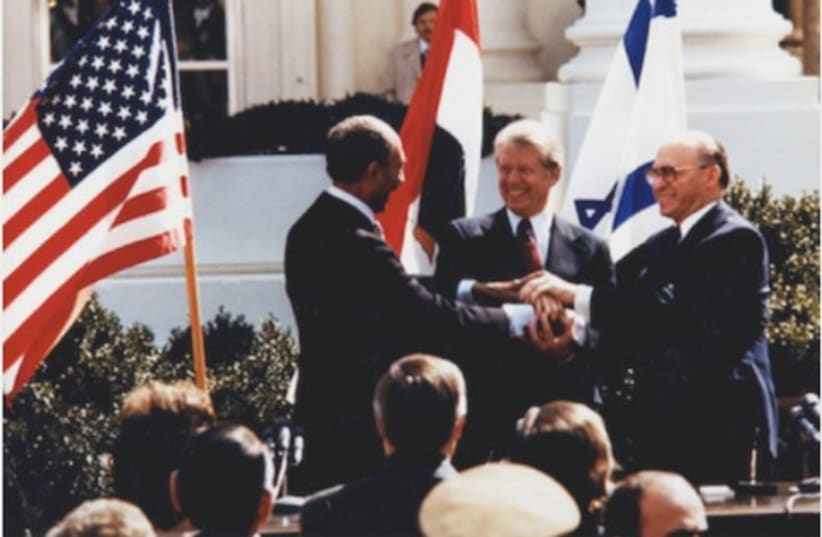Israel State Archives declassifies 1970s Egypt-Israel peace docs that read like today’s headlines
Analysis: The iconic picture of Begin, Sadat and Carter grasping hands at the White House does little to reveal the tension, frustration and political machinations that preceded that image.
